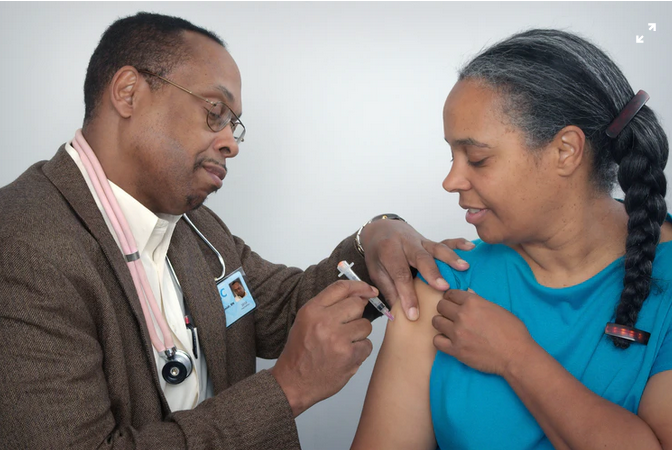19 November 2020
Vaccination
Spreading immunity.
By Robert Kilconner
I have never liked talkback radio so it was with some reluctance that I turned on the radio while waiting for my wife to queue for the Saturday croissant. The program, which was either called “any questions” or “any answers”, I forget which, followed the normal format of a slurry of questions being put to a panel comprising a government minister, representatives of the other political parties and one or two outsiders as well. The answers were highly predictable. The minister always thought that the Government was pursuing the right policies. The others thought the policies should be different, changed or whatever. No surprises there, then.
One issue, however, did get my attention and that was to whom a future coronavirus vaccine should be made available. As far as the UK was concerned, this proved fairly uncontentious. Vulnerable people and NHS staff should come first and then entitlement to the shots would move down the age range. More interesting was how and to what extent any serum, and those being developed by Pfiser and Oxford/AstraZeneca have already been pre-ordered in huge quantities by the UK and other developed countries, should be made available to those with shallower pockets. Again there wasn’t much disagreement. It was generally accepted that for political reasons those countries which had bought vaccine would have to use it on their citizens first and that some sort of help would need to be given to other countries in order to enable them to put in place corresponding vaccination programmes. What was surprising, however, was the extent to which this was seen as a primarily a moral duty, a matter of overseas aid, when actually the main point is a scientific one.
Nobody knows to what extent those who have been infected with the coronavirus can get it again. At the beginning of the pandemic we heard a lot about herd immunity and initially the government’s reaction (and indeed that of some other countries) was to rely on this. Then we were told that the antibodies only lasted for a short period; then that one should look at T cells rather than antibodies. Anyway, the upshot is that there is a least a possibility that the disease can come back every year because by then the immunity caused by the last outbreak will have declined. Perhaps the same can be said of the immunity derived from inoculations, in which case the continuation of Covid in developing countries will mean that we either have to keep the process of inoculation going indefinitely, dealing each year with the new mutant strains, or that we will have to close borders to infected parts of the world with travellers going through quarantine on arrival from them.
It follows that, leaving aside any moral imperatives, we all have an interest in the elimination of Covid in all parts of the world and need to fund international vaccination programmes accordingly. How that is to be done is a difficult question. Most friendly countries will take the funds, do the vaccinating and all will be well, but what about unfriendly countries? What about Iran, North Korea and areas controlled by warlords in central Africa? How do you persuade them to vaccinate, particularly when there are plenty of sites on the internet to tell them that the injection will turn them into monkeys/ make them go bald/ put them under the control of the CIA/ or reduce their fertility? It will not be easy to do and it will only work if the initiative is sponsored by the World Health Organisation supported by all the main international players. Is the urgency sufficient for them all to work together? Probably not (and Russia’s early release of the Sputnik vaccine to gain a commercial advantage is a poor portent). If it is, however, perhaps it could herald a new era in dealing with global problems.
It is well worth thinking about, perhaps the defining international question of the decade. It was not, of course, even considered on talkback radio.
Tile photo by CDC on Unsplash


